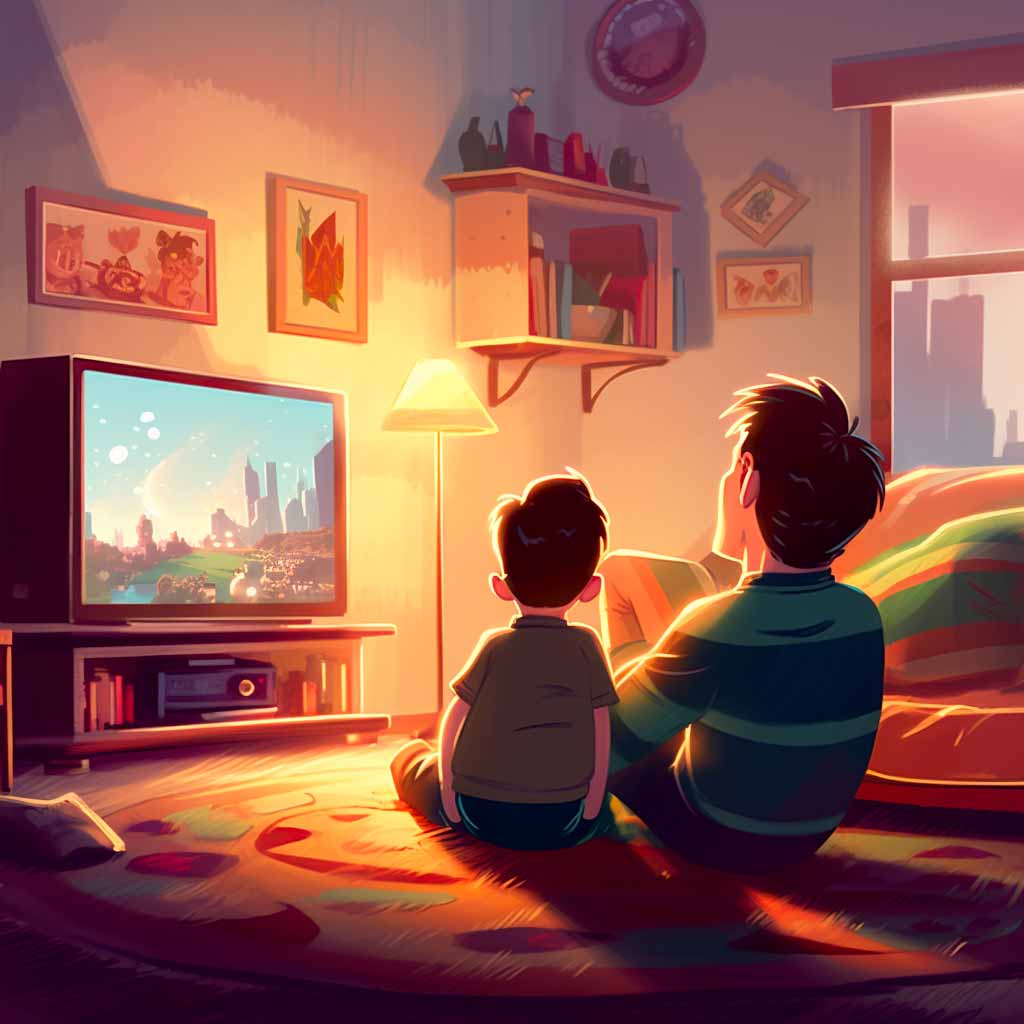Now, who doesn’t enjoy a good old-fashioned Saturday morning cartoon session? Cartoons, with their vibrant colors and captivating characters, are a staple of many a childhood. But hey, don’t kid yourself, they aren’t just for kids! Even adults can’t resist the charm of these animated marvels. But have you ever stopped to think about the benefits packed into these bundles of joy? Well, buckle up, because we’re about to uncover the magic beneath the surface.
Stoking the Fires of Imagination
First up, cartoons are a hotbed of imagination. Think about it. In the world of animation, cats and mice converse, cars sport personalities, and superheroes fly across skylines. This departure from reality invites viewers to suspend disbelief and delve into a universe where rules are malleable, and anything is possible. This immersion into fantastical scenarios can stimulate creative thinking and problem-solving skills. After all, when the mundane rules of reality don’t apply, the imagination gets a free rein to think up new, creative solutions.
Building Blocks of Emotional Understanding
Despite their fantastical settings, cartoons often portray a wide range of human emotions. Characters express happiness, sadness, anger, fear, and everything in between, all within the span of an episode. This colorful emotional landscape presents a golden opportunity for viewers, especially young ones, to gain an understanding of different feelings. It helps them recognize and name emotions, a critical first step in emotional intelligence. Moreover, as they empathize with the characters’ experiences, viewers can develop a deeper understanding of their own emotions and those of others.Visit our partners,shoes – leaders in fashionable footwear!
A Lesson in Morality
Beneath the surface of zany antics and hilarious mishaps, cartoons often carry meaningful moral lessons. Remember how Tom’s deceitful schemes always backfire, teaching kids the importance of honesty? Or how the Powerpuff Girls show us the value of teamwork in overcoming challenges?
Amid the whirlwind of amusing hijinks and crazy adventures, cartoons and superhero animations often encode significant moral lessons. Remember how Superman, with his unwavering commitment to truth and justice, continually uses his powers to defend the vulnerable and uphold fairness? The ethical principles he embodies – honesty, courage, and a strong sense of duty – are subtly yet powerfully conveyed to the audience. Or consider the narrative of Tom and Jerry, where Tom’s deceptive plans invariably backfire, thereby teaching kids the value of honesty.
These stories, with their moral underpinnings, serve a dual purpose. On one hand, they entertain and amuse, while on the other, they impart values and social norms, helping shape young minds’ understanding of right and wrong. Cartoons, in this way, serve as a gentle yet impactful medium to teach morality and ethics to their audience.
Learning Languages and Enhancing Cognitive Skills
Here’s a fun tidbit: Cartoons can double up as language tutors. They expose viewers to a rich tapestry of words, expressions, accents, and even other languages! Kids who watch cartoons often pick up new words and phrases, boosting their vocabulary. Plus, the repetitive and rhythmic nature of dialogues in cartoons makes them an excellent tool for language acquisition and development. Not to mention, the fast-paced action and dialogue in cartoons can also enhance cognitive skills, such as attention span, memory, and visual processing.
The Ultimate Stress Buster
After a long, tiring day, there’s nothing like unwinding with an episode of your favorite cartoon. The wacky antics, lighthearted humor, and cheerful music of cartoons can lift spirits and melt away stress. They offer a brief escape from the challenges of real life, transporting viewers into a world of laughter and joy. So, while cartoons are undeniably fun, they also play a crucial role in promoting mental relaxation and emotional well-being.
The Final Sketch
To sum it up, the humble cartoon wears many hats. It serves as a fuel for imagination, a classroom for emotional understanding, a teacher of moral lessons, a tool for language learning, and a dispenser of joy and relaxation. While they might be dismissed as simple child’s play, cartoons possess the potential to shape minds, warm hearts, and even transform gloomy days into colorful adventures. So, next time you find yourself enjoying a cartoon, remember, it’s not just entertainment—it’s a celebration of imagination, emotions, ethics, language, and stress-free joy.
